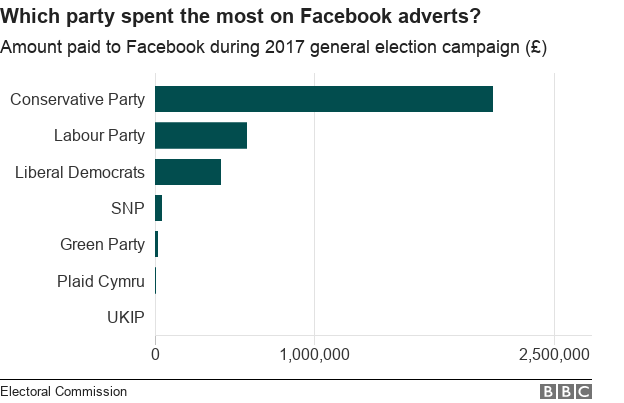NEW MEDIA
New media is a phenomenon that promises to unbalance the now comfortable traditional use of public relations (PR) in the political process. New forms of technology are becoming increasingly useful as a communication tool in politics. To explain “New media uses digital computer technology for distribution” (Neese, 2016) which allows for near instant communication with the public. This can be through social media platforms, forums or even email.
The level of “email, as a form of MP-constituent communication, is increasing every year” (Davis, 2007, p. 123). Although email is increasingly seen by the public as an irrelevance.
Social Media use could be saturated
Perhaps politicians should be searching for the next greatest thing in terms of New Media rather than jumping on established bandwagons. The UK’s social media base is growing but may soon reach saturation point. In “January 2018, the total number of active social media users amounted to 44 million” (Statista, 2018).
Anecdotally it has been said that the UK public tend to turn to Twitter for breaking news. And MPs have been quick to take advantage of this new subset of new/internet media with “90% (582/650) of MPs have a Twitter account” (Mpsontwitter.co.uk, 2018). It would seem that the UK public does not embrace Twitter just as much as the politicians may believe. “As of January 2018, the social network market share of Twitter was at 10.79 percent” (Statista, 2018).
Facebook vs Twitter
Whilst using a platform like Twitter to share news and events among followers may seem a clear no-brainer in terms of MPs using social media to communicate with voters, a recent study showed that the social media landscape is nuanced and not as simple as it may seem. “The proportion of users who say they follow breaking news on Twitter, for example, is nearly twice as high as those who say they do so on Facebook (59% vs. 31%)” (Barthel et al., 2018)
Jumping on a bandwagon
Politicians need to be wary of jumping on an easy to use bandwagon such as Twitter and ignoring other platforms that may take more skill to use effectively. For instance, Facebook is a platform that requires arguably more skill to use as there is more scope to communicate without being limited to Twitter’s 160 character limit.
Facebook wins with £3 million spent
This is borne out by the Electoral Commission’s report on spending by political parties in the 2017 General Election.

Over £3 million was spent on advertising on Facebook alone during the short election campaign (electoralcommission.org.uk, 2018) by all political parties. The parties used video and the written word to great effect after David Cameron’s almost accidental use of Facebook paid advertising of £1.5 million in the previous election as opposed to the 2017 spend of over £2.1 million. Google comes in second with an advertising spend of just over £1 million.
So, it would seem that the practice of advertising via new media is here to stay. And paying for interaction with voters is the way forward.
Although, with only £56,504 spent by across all political parties with Twitter. It seems that the main party machines are leaving Twitter use to the hustings and local campaigns while managing Facebook centrally.
References
Barthel, M., Shearer, E., Gottfried, J. and Mitchell, A. (2015). The Evolving Role of News on Twitter and Facebook. [online] Pew Research Center’s Journalism Project. Available at: http://www.journalism.org/2015/07/14/the-evolving-role-of-news-on-twitter-and-facebook/ [Accessed 12 May 2018].
D’Urso, J. (2018). Who spent what on Facebook at 2017 election?. [online] BBC News. Available at: http://www.bbc.co.uk/news/uk-politics-43487301 [Accessed 13 May 2018].
electoralcommission.org.uk. (2018). Search – The Electoral Commission. [online] Available at: http://search.electoralcommission.org.uk/Search/Spending?currentPage=1&rows=20&query=facebook&sort=SupplierName&order=desc&tab=1&open=filter&et=pp&includeOutsideSection75=true&evt=ukparliament&ev=3568&optCols=ExpenseCategoryName&optCols=AmountInEngland&optCols=AmountInScotland&optCols=AmountInWales&optCols=AmountInNorthernIreland&optCols=DatePaid [Accessed 13 May 2018].
Mpsontwitter.co.uk. (2018). MPs on Twitter: Information, statistics and analysis about the members of UK Parliament using Twitter. [online] Available at: https://www.mpsontwitter.co.uk/ [Accessed 12 May 2018].
Neese, B. (2016). What Is New Media? – Southeastern University. [online] Southeastern University. Available at: https://online.seu.edu/what-is-new-media/ [Accessed 13 May 2018].
Statista. (2018). Twitter’s market share in the UK 2015-2018 | Statistic. [online] Available at: https://www.statista.com/statistics/280304/twitters-market-share-in-the-united-kingdom-uk/ [Accessed 13 May 2018].
Statista. (2018). UK: social media penetration 2018 | Statistic. [online] Available at: https://www.statista.com/statistics/507405/uk-active-social-media-and-mobile-social-media-users/ [Accessed 13 May 2018].
